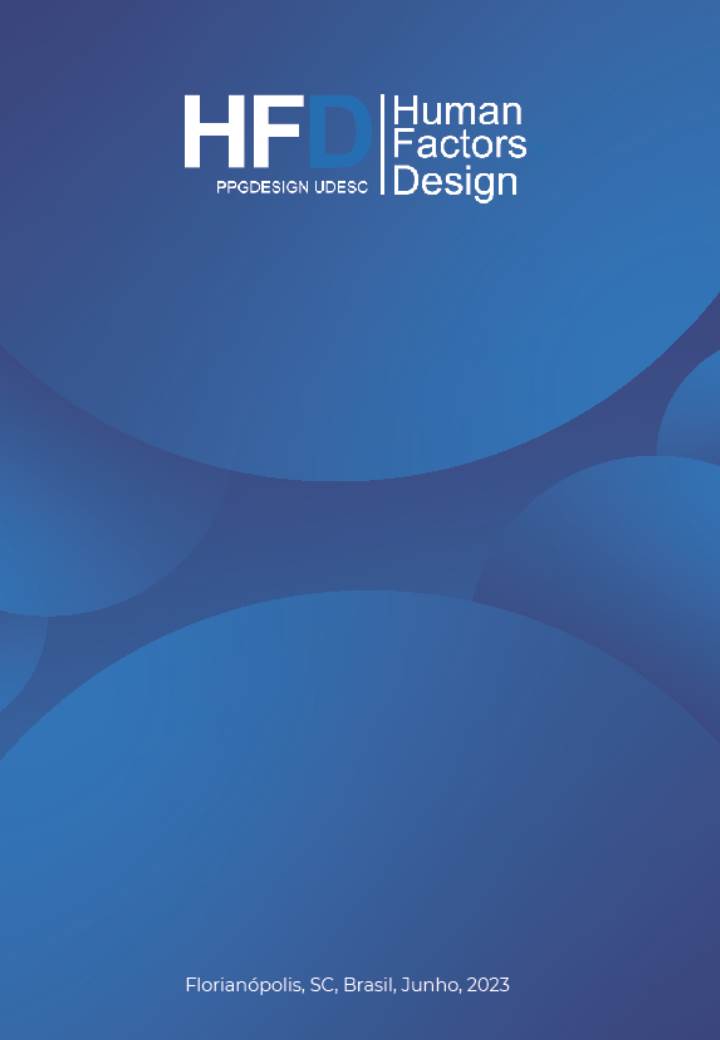Framework conceitual para aplicação do Lean Healthcare considerando fatores humanos
DOI:
https://doi.org/10.5965/2316796312232023095Palavras-chave:
Lean Healthcare, fatores humanos, melhoria de sistema, melhoria de bem-estar humanoResumo
Esta pesquisa apresenta o desenvolvimento do framework Human Factors and Lean for Healthcare (HF&L4H) como objetivo abordar os fatores humanos nos princípios do Lean Healthcare com foco no desempenho do sistema de saúde e do bem-estar humano. O framework foi construído a partir da identificação de uma carência envolvendo estes dois temas para melhoria de processos na área da saúde, sendo aplicado experimentalmente em um Hospital Universitário em Curitiba/PR, procurando abordar problemas relacionados aos desperdícios de processo e demandas de fatores humanos na localização dos materiais cirúrgicos e riscos ergonômicos devido a necessidade de manuseio de materiais por conta do peso e local de armazenamento. A aplicação apresentou resultados promissores resultando na facilidade de localização dos materiais nas prateleiras, facilidade de leitura e identificação das etiquetas e redução do risco de lesões ou adoecimentos por conta transporte de materiais pesados em locais inadequados.Downloads
Referências
AGUIAR, G. A. S.; OLIVEIRA, J. R. Absenteísmo: suas principais causas e consequências em uma empresa do ramo da saúde. Revista de Ciências Gerenciais, [S.l.], v. 13, n. 18, p. 95-113, 2009.
ASSOCIAÇÃO BRASILEIRA DE NORMAS TÉCNICAS (ABNT). NBR ISO/CIE 8995-1: Iluminação de ambientes de trabalho. Rio de Janeiro, 2013.
BATISTA, A. A. G. Absenteísmo: fatores determinantes e consequências. 2012. 56 f., Fundação Educacional do Município de Assis – FEMA, Assis, 2012.
BRASIL. Ministério do Trabalho e Emprego. Norma Regulamentadora 17 – NR17. Brasília: Ministério do Trabalho e Emprego, 2020. Disponível em: https://www.gov.br/trabalho/pt-br/inspecao/seguranca-e-saude-no-trabalho/normas-regulamentadoras/nr-17.pdf/view. Acesso em: 25 jan. 2021.
DATAPREV. Indicadores de Acidentes do Trabalho. Secretaria Especial de Previdência e Trabalho. Brasília, 2021. Disponível em: http://www3.dataprev.gov.br/aeat/Info_aeat_Indicadores_de_AT.html. Acesso em: 27 jan. 2021.
CHRUSCIAK, C. B. Framework conceitual para aplicação do lean healthcare considerando fatores humanos. 2021. 115 f. Dissertação (Mestrado) - Curso de Engenharia de Produção e Sistemas, Programa de Pós-Graduação em Engenharia de Produção e Sistemas, Pontifícia Universidade Católica do Paraná, Curitiba, 2021.
CHRUSCIAK, C. B.; PONCINI, C. R.; BITENCOURT, R. S.; CANCIGLIERI JUNIOR, O. Social Responsibility in a University Hospital: An Application with a Socio-Technical Focus. In: LEAL FILHO, W. Integrating Social Responsibility and Sustainable Development, World Sustainability Series. Switzerland: Springer Nature Switzerland Ag, 2020. p. 627-642.
FERREIRA, L.; GURGUEIRA, G. P. Ergonomia como fator econômico no pensamento Enxuto: uma análise crítica bibliográfica. GEPROS. Gestão da Produção, Operações e Sistemas, Bauru, n. 3, p.39-51, set. 2013.
FILLINGHAM, D. Can lean save lives? Leadership in Health Services, v. 20, n. 4, p. 231–241, 2007.
GOMES, S. V.; PASSOS, J. P. As doenças ocupacionais originadas frente à exposição a riscos ocupacionais na prática dos profissionais de enfermagem. R. Pesq.: Cuid. Fundam. Online, [S.L.], v. 2, p. 572-575, 2010.
IIDA, I.; GUIMARÃES, L. B. de M. Ergonomia: projeto e produção. 3. ed. São Paulo: Blucher, 2016. 850 p.
MATTOS, D. L. Avaliação de um modelo de gestão de ergonomia baseado em práticas da produção enxuta: enfoque no índice de absenteísmo de uma empresa de embalagens de papelão ondulado catarinense. 2015. (Mestrado em Engenharia de Produção na área de Ergonomia) – Centro Tecnológico. Universidade Federal de Santa Catarina, Florianópolis.
RAZZA, B. M.; LUCIO, C. M.; SILVA, J. C. P.; PASCHOARELLI, L. C. Da organização científica à ergonomia: a contribuição de Frederick Winslow Taylor. In: SILVA, J. C. P., PASCHOARELLI, L. C. (org.). A evolução histórica da ergonomia no mundo e seus pioneiros [online]. São Paulo: Editora UNESP; São Paulo: Cultura Acadêmica, 2010. 103 p. ISBN 978-85-7983-120-1.
RIASCOS, C. E. M.; PEREIRA, L. L.; GONTIJO, L. A.; MERINO, G.; MERINO, E. Human factors at work: OWAS application for identification of musculoskeletal disorders in a maintenance assistant. Human Factors in Design, Florianópolis, v. 8, n. 16, p. 082-104, 2019. DOI: 10.5965/2316796308162019082.
SAURIN, T. A.; GUIMARÃES, L. B. M. Intervenção Ergonômica em uma fábrica de ônibus: montagem de poltronas e painéis de controle. Produto & Produção, v. 9, n. 1, p. 93-110, 2008.
TRANFIELD, D.; DENYER, D.; SMART, P. Towards a Methodology for Developing Evidence-Informed Management Knowledge by Means of Systematic Review. British Journal of Management, Cranfield, v. 14, n. 1, p. 207–222, 2003.
UNRUH, G. U.; CANCIGLIERI JUNIOR, O. Proposta de Modelo de Análise e Avaliação das Necessidades Humanas no Processo de Desenvolvimento de Produtos. Human Factors In Design, v. 9, n. 18, p. 52-77, 2020.
Downloads
Publicado
Como Citar
Edição
Seção
Licença
Copyright (c) 2023 Human Factors in Design

Este trabalho está licenciado sob uma licença Creative Commons Attribution 4.0 International License.
Os artigos publicados pela revista são de uso gratuito, destinados a aplicações acadêmicas e não comerciais. Os direitos autorais são todos cedidos à revista. Os artigos cujos autores são identificados representam a expressão do ponto de vista de seus autores e não a posição oficial da revista Human Factors Design. O (s) autor (es) se compromete a sempre que publicar material referente ao artigo publicado na Revista Human Factors Design mencionar a referida publicação da seguinte forma:
Este artigo foi públicado originalmente pela Revista Human Factors Design em seu volume (colocar o volume), número (colocar o número) no ano de (colocar o ano) e pode ser acessado em: https://periodicos.udesc.br/index.php/hfd/index


